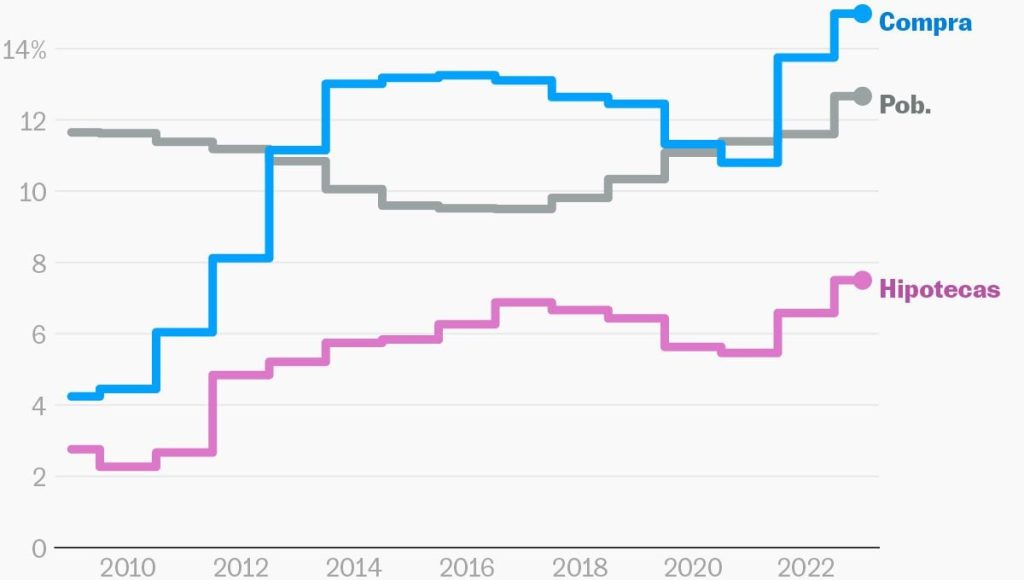In 2023, 583,000 homes were sold in Spain, with 15% of them being purchased by foreigners. This is a significant proportion, considering that foreigners make up 13% of the resident population. Despite a decrease in foreign purchases during the pandemic, the trend since 2013 has been that their share in home purchases exceeds their population share. Foreigners tend to buy homes outright, with only 7.5% of mortgages taken out by them, even though they account for 15% of home purchases.
The differences in home purchases by foreigners vary by autonomous communities in Spain. In tourist areas such as the Canary Islands, Balearic Islands, Valencia, Andalusia, and Murcia, foreigners make up a higher proportion of home buyers compared to their population share. On the other hand, in regions with less tourism, such as Madrid, Aragon, Navarra, Asturias, Basque Country, and Galicia, foreigners purchase fewer homes relative to their population share. This discrepancy can be attributed to various factors such as lower incomes of some immigrants and a preference for not owning property in a transient country.
The Spanish government recently announced the elimination of the ‘golden visa’, which offers residency in exchange for a real estate investment of over 500,000 euros. While these visas represented only 0.5% of total transactions in 2023, they may have had some impact on the rise in housing prices. Research conducted in Portugal, where golden visas were more prevalent, showed that they increased luxury home prices by 10%. The entry of new demand through these visas can have a cascading effect on the housing market, affecting prices across all segments.
In the United States, the relationship between Republican and Democratic voters and income levels has shifted over the years. While Democrats used to win among low-income earners and Republicans among high-income earners, recent surveys suggest a reversal of this trend. This change highlights the evolving political landscape and the influence of economic factors on voter behavior. Additionally, advancements in artificial intelligence, as seen in the latest developments in chatbot technology, are shaping the future of digital interactions. The emergence of new models, such as Claude 3 Opus, signals a shift in AI capabilities and ongoing competition in the field.
As technology continues to advance and economic dynamics evolve, it is essential to consider the implications of these changes on various aspects of society. From housing trends to political shifts to AI developments, understanding the interconnected nature of these shifts can provide valuable insights into the future landscape. By staying informed and engaging with emerging trends, individuals can navigate the complexities of a rapidly changing world. Subscribe to newsletters and stay updated on current events to stay informed and prepared for the challenges and opportunities that lie ahead.


